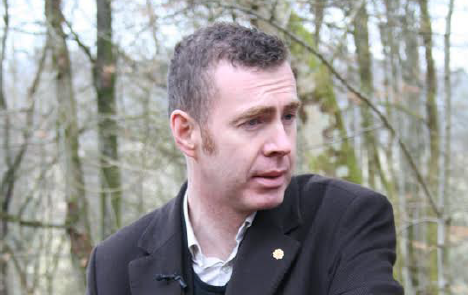
SCHOOLS across Wales have been accused of ‘gaming’ the examination and qualification system at GCSE level and failing pupils in the process.
The issue has arisen following a report from Qualifications Wales, the regulator of non-degree qualifications and the qualification system in Wales, which has alerted the Welsh Government to the high risk that overall GCSE results will decline in Wales due to the widespread practice of entering children a year early into GCSE examinations in order to ‘bank’ results, with able pupils denied the chance to improve their grade at a later examination.
Almost two thirds of Year 10 pupils were entered for the English GCSE in the last exam cycle.
The same practice in England led to the UK Government intervening and making adjustments to school league tables, so that only the first attempt at examinations counted towards schools’ performance.
And Kirsty Williams, the Cabinet Secretary for Education in the Welsh Government, has said she may now intervene to prevent or curtail Welsh schools from putting Welsh pupils forward to sit GCSEs a year early.
In an interview on BBC Wales’ Sunday Politics, Kirsty Williams said: “What I’m concerned about is that children that, perhaps had the potential to get an A* and A or a B at the end of a two year course end up having to settle for a C because they do it early and they’re not re-entered again.
“I want children to fulfil their potential in school. I want early entry to be only for the children who will benefit from it.
“When I see such large numbers as are being reported as being entered, that’s something I am concerned about.”
Qualifications Wales said the problem is particularly acute this year due to a more rigorous curriculum and examination programme.
The body is scheduled to complete a review and report to the Welsh Government in September this year on the issue.
Welsh Government advice is that decisions about early entry into GCSE’s must be made ‘in the interests of the individual child’. In May, however, the Welsh Government’s Director of Education, Steven Davies, claimed in evidence to an Assembly Committee that schools have conducted early entry ‘to test the system’.
Mr Davies continued: ‘There are also those out there who are gaming.’
Mrs Williams’ stance on the subject has been welcomed by Adam Price AM.
Adam Price has been making representations regarding early exam entry to the Welsh Government since the start of the year having been contacted by a local maths tutor who had seen a dramatic rise in demand for private tutoring.
The Plaid Cymru AM also met with the Education Secretary in May to express concern that pupils may not be reaching their full potential.
Mr Price says he welcomes the willingness of the Education Secretary to intervene but said options for early entry should not be closed off to everyone.
Adam Price said: “I first made representations to the Education Secretary back in January having been contacted by a local maths tutor who had seen a dramatic rise in demand for private tutoring. His concern was that pupils were being entered for early examination but did not have time to actually finish the course before sitting the exams.
“Whilst it seems attractive for pupils to ‘bank’ a good grade early and take some pressure off a year later, many pupils will miss out on a better grade if they were to be given the opportunity to complete the course over the longer and traditional two year timescale.
“Early entry for exams is not a new phenomenon – this has always been a feature of GCSEs at the discretion of teachers and it should not be closed off entirely. But there does seem to be widespread change this year with almost two-thirds of all pupils in Wales being entered a year early.
“I welcome the Minister’s comments that she is prepared to intervene depending on the findings of her review, but the pressure on schools and teachers must be considered as part of this investigation.
“We all want what is best for our school pupils. The education system should support pupils who need the full two years of study, and allow teachers to make decisions on how pupils can best reach their individual potential.”
















